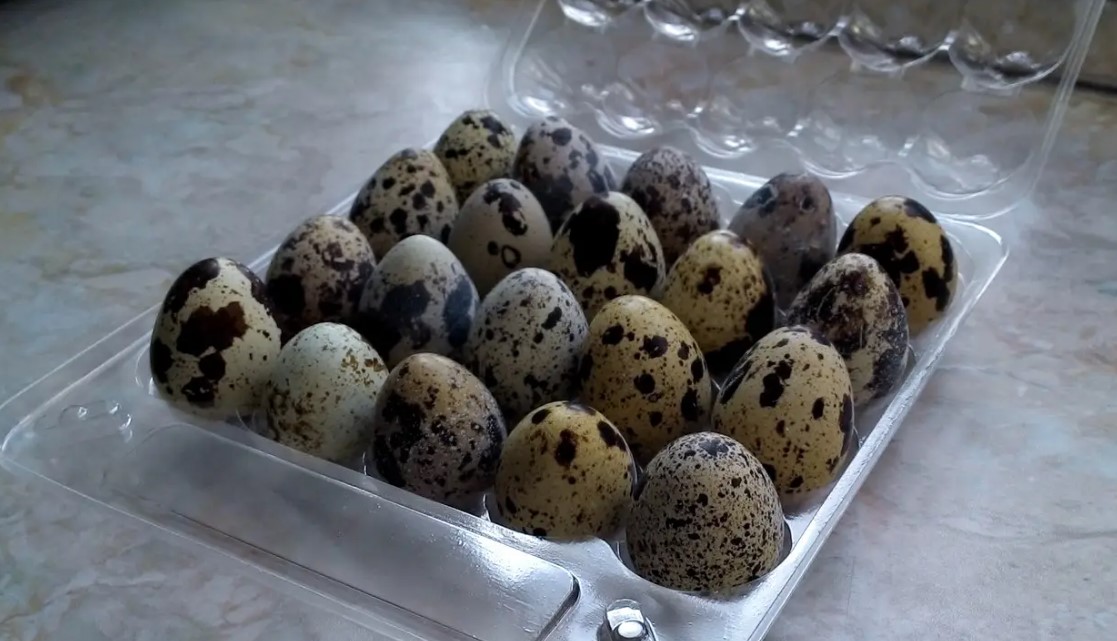The small speckled eggs are trendy and are often advertised as superfood. However, the truth behind the quail eggs looks murky. We explain why you should stay away from quail eggs and quail meat.
Quails are the smallest of all gallinaceous birds, their eggs weigh just ten to twelve grams. The pretty mini-sized eggs can be prepared like chicken eggs, but their taste is a bit more intense.
Both the eggs and the quail meat are becoming increasingly popular. While quail eggs used to only be an exclusive delicacy in delicatessens, eggs have now become something of a trend food item and are available in almost every supermarket and discounter. They are often referred to as superfood, as they contain many minerals, trace elements and vitamins.
Here’s what you should know about quail eggs

However, many people do not realize how sad the circumstances are under which the birds eke out their existence.
1. There is no cage ban when keeping quail
Actually hard to believe: What is forbidden for laying hens and broilers is allowed for quail. In the EU there is neither a cage ban nor far-reaching regulations for keeping quail. 143 million quail are said to be kept in unstructured cages in the EU.
There they live crammed together in a very small space and can hardly stand up. Behavioral disorders and injuries are the order of the day, according to the German Animal Welfare Office.
In addition to cages, Soko Tierschutz also criticizes the way fattened quails are kept on the ground, which shows that this form of husbandry is just as cruel as keeping them in cages: “More than 100,000 quails are usually kept in a hall, painfully cramped, only artificial light, that too burns in the night, no chance for weak animals.”
In the wild, quail spend much of the day on the move: walking, running, flying, pecking for food and bathing in the sand.
No labeling of quail eggs
The EU marketing standard for chicken eggs is not mandatory for quail eggs. In the past, quail eggs were often found to be incorrectly labeled: the packs said “barn farming”, but the eggs came from cage farming. “Even the term ‘free range’ is not necessarily comparable to free-range chickens,” explains the German Animal Welfare Association.
Quail eggs come from factory farming
Like laying hens, quail are bred on a large scale – and the market for the small eggs is anything but small: in Germany alone, more than 40 million quail eggs are consumed every year. Most of them come from cage batteries.
High performance breeding in quail
High-performance breeding also entails animal welfare problems, explains the German Animal Welfare Association: “While wild quail only lay ten to 15 eggs a year, hens of the specially bred laying line ‘produce’ almost 200 eggs during their short ‘useful life’ of a maximum of 38 weeks before they be slaughtered.”
This abnormal laying performance means that the birds often suffer from peritonitis and inflammation of the fallopian tubes.
Little egg for much animal suffering
Animal suffering cannot be offset. But since the small quail eggs weigh just over ten grams, the animal suffering from quail eggs is disproportionately high compared to chicken eggs (50 to 60 grams). At least if you want to get full from the eggs.
Quail eggs travel far

Quail eggs are still often not from Germany – about half of the eggs are imported from abroad. This makes the keeping conditions even less comprehensible. In addition, there are long distances that pollute the climate.
Utopia advises: Quail eggs are another example of the fact that the consumption of animal products is often associated with a great deal of misery and suffering for the animals. Even with laying hens, conventional husbandry is cruel, with quail it is even more torture.
The Albert Schweitzer Foundation warns that organic quail eggs are not automatically a good solution either. Here, too, the animals live and die “often under poor conditions”. Quail farming is still miles away from initiatives such as dual-purpose chickens and brother roosters for more compatible chicken farming. Therefore, our tip here is very clear: It is best to avoid quail eggs altogether!

